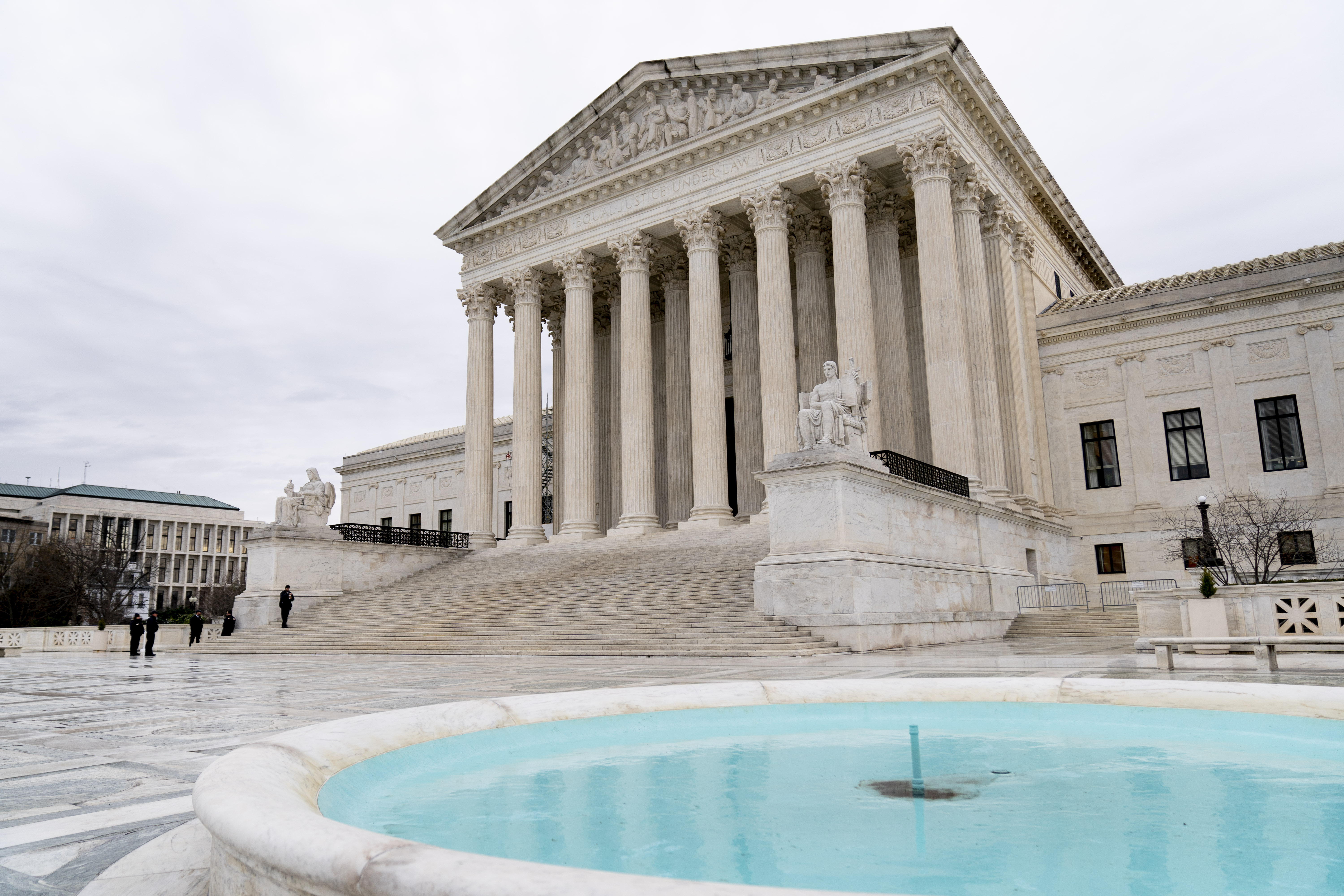
The United States Supreme Court declined to give politicians at the state level more power over federal elections by limiting the ability of state courts to review their actions, handing a defeat to Republican lawmakers in North Carolina.
The decision upheld a 2022 ruling by North Carolina’s top court that had struck down a congressional districting plan as excessively partisan under state law.
In a six-three vote on Tuesday, the justices rejected the broadest view of a theory that could have transformed elections for US Congress and president.
The “independent legislature theory” now favoured by many conservatives, would remove any role of state courts and state constitutions in regulating presidential and congressional elections.
While the US Constitution’s Elections Clause grants broad powers for state lawmakers to organise federal elections, the top court asserted that state courts have the authority to review election laws and ensure that they comply with the state’s constitution.
“State courts retain the authority to apply state constitutional restraints when legislatures act under the power conferred upon them by the Elections Clause,” Chief Justice John Roberts wrote in the ruling.
The high court did, however, suggest there could be limits on state court efforts to regulate elections for Congress and president.
The practical effect of the decision is minimal in that the North Carolina Supreme Court, under a new Republican majority, already has undone its redistricting ruling.
Justices Samuel Alito, Clarence Thomas and Neil Gorsuch would have dismissed the case because of the intervening North Carolina court action.
There is still a pending redistricting case from Ohio, if the justices want to say more about the issue before next year’s general elections.
The North Carolina case attracted outsized attention because four conservative justices had suggested that the Supreme Court should rein in state courts in their oversight of elections for president and Congress.
Opponents of the “independent legislature theory” had argued that the effects of a robust ruling for North Carolina Republicans could be much broader than just redistricting.
Potentially at stake were more than 170 state constitutional provisions, more than 650 state laws delegating authority to make election policies to state and local officials, and thousands of regulations down to the location of polling places, according to the Brennan Center for Justice at the New York University School of Law.
The administration of President Joe Biden applauded Tuesday’s ruling, with spokesperson Olivia Dalton calling it a “critical” victory for voting rights and dismissing the “independent legislature theory” as “extreme”.
The justices had heard arguments in December in an appeal by the state’s Republican leaders in the legislature. Their efforts to draw congressional districts heavily in their favour were blocked by a Democratic majority on the state Supreme Court because the GOP map violated the state constitution.
A court-drawn map produced seven seats for each party in last year’s midterm elections in highly competitive North Carolina.
The US House has 435 seats allocated to states in proportion to the size of their respective populations.
State legislatures draw congressional districts every 10 years to reflect demographic changes as documented by the US Census. Lawmakers often produce maps favouring their own political parties, a phenomenon known as gerrymandering that critics have said harms democracy.
The question for the Supreme Court in the North Carolina case was whether the US Constitution’s provision giving state legislatures the power to make the rules about the “times, places and manner” of congressional elections cuts state courts out of the process.
Leading Republican lawmakers in North Carolina told the Supreme Court that the Constitution’s “carefully drawn lines place the regulation of federal elections in the hands of state legislatures, Congress and no one else”.
In North Carolina, a new round of redistricting is expected to go forward and produce a map with more Republican districts.
Tuesday’s ruling is the third major elections-related decision by the Supreme Court this month. On Monday, justices unfroze a challenge to an electoral map in Louisiana that advocates had argued diluted the power of Black voters.
That decision followed an earlier ruling in which the justices sided with Black voters in Alabama who similarly claimed discrimination in violation of the civil rights-era Voting Rights Act.







